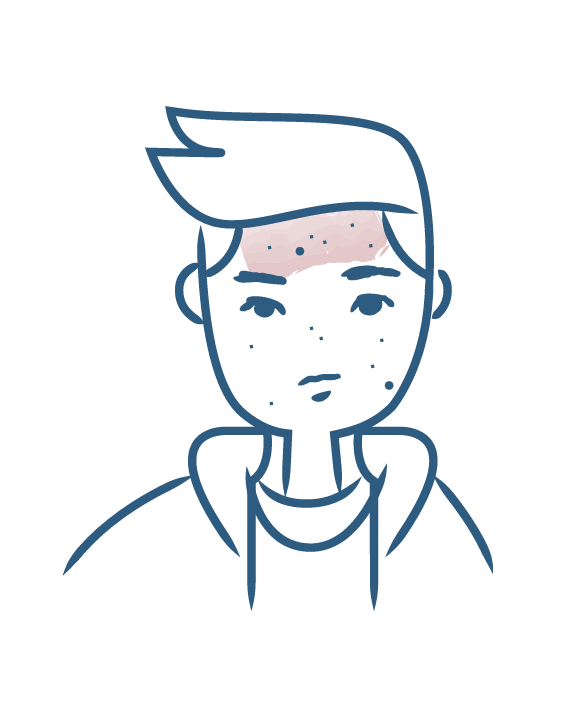What are the different types of acne?

Infant acne
Acne mainly affects teenagers, but also other groups, especially infants. This may seem strange and alarming, yet it is very common. Young parents should not be worried about it at all!
What is infant acne?
Infant acne is an acne type that affects babies mainly between 0 and 3 months of age. Beyond this age, it is more commonly referred to as childhood acne. The baby's face is covered with small spots, both comedones and inflammatory lesions typical of acne. This type of acne lasts a few weeks or sometimes a few months and usually disappears as quickly as it appeared. Infant acne does not bother the baby and does not prevent it from developing normally. A baby with acne is not at any greater risk of getting it as a teenager.
What causes infant acne?
It is thought that infant acne is due to hormonal changes that are initially present in the mother during pregnancy. Infant acne is also exacerbated by the application of excessively oily cosmetics. Parents often believe there is a link between infant acne and breastfeeding, infant acne and breast milk, or infant acne and the use of certain types of formula. However, diet does not cause infant acne, so there is no need to change the baby's feeding habits.
How do you resolve infant acne?
In general, infant acne treatment does not require the application of any specific product. It is more a question of common sense:
- Encourage gentle hygiene practices using a dermatological bar, with a pH that respects the skin.
- Gently pat the skin dry;
- Do not apply oily cosmetics to the lesions;
- Do not touch the lesions and do not attempt to pierce the spots as this may cause superinfections and/or scars;
- See a doctor if acne lesions worsen or if there are sudden or continuing changes in appearance after 6 months.
More information
- Discover Acne in men
What are the different types of acne?
Acne in men
- Discover Acne fulminans
What are the different types of acne?
Acne fulminans
- Discover Acne in women
What are the different types of acne?
Acne in women
- Discover Juvenile acne
What are the different types of acne?
Juvenile acne
- Discover Retentional acne
What are the different types of acne?
Retentional acne
- Discover Inflammatory acne
What are the different types of acne?
Inflammatory acne
- Discover Nodular acne
What are the different types of acne?
Nodular acne
- Discover Adult acne
What are the different types of acne?
Adult acne
Our care routines
Oily or acne-prone skin
- Discover Anti-blemish face care summer routine for adult skin
Anti-blemish face care summer routine for adult skin

